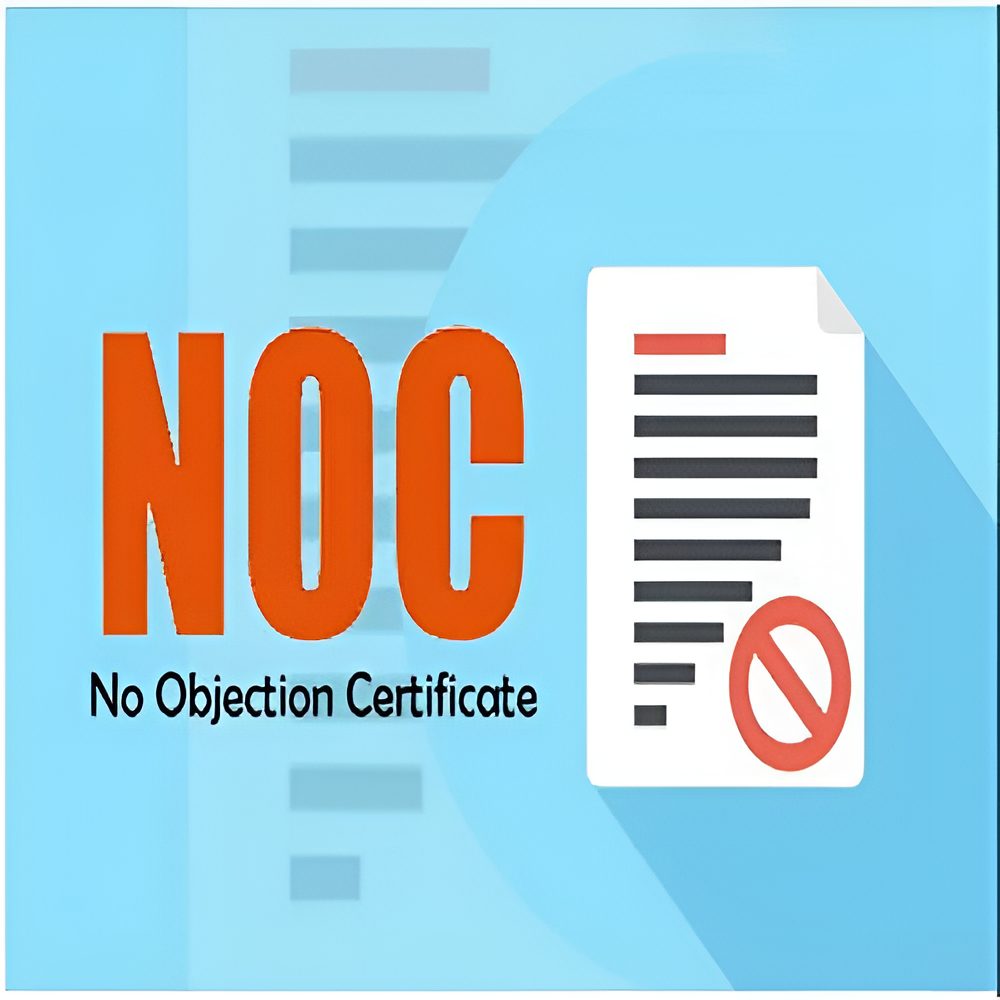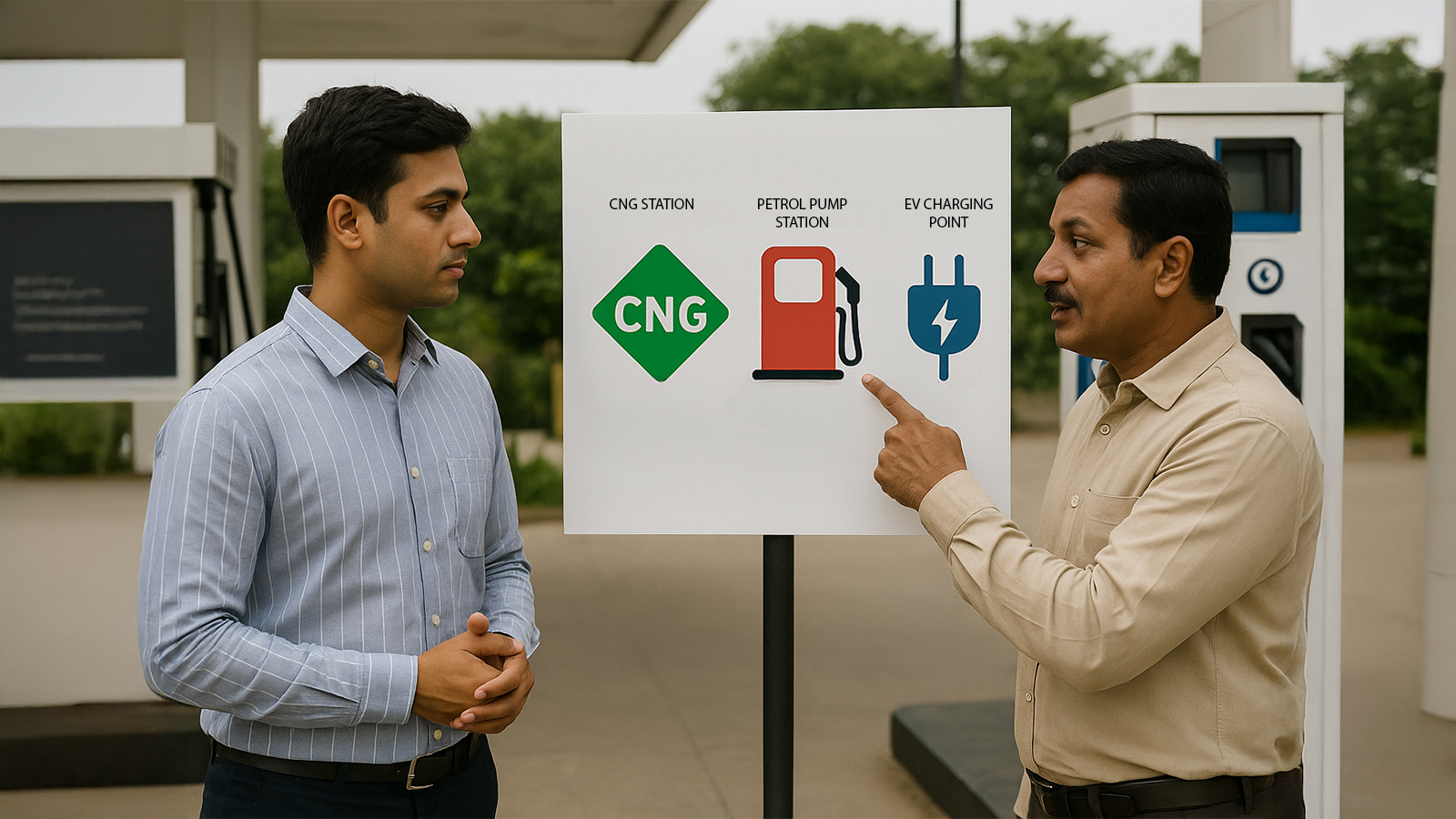Step-by-Step Guide to Open a Fuel Station: Petrol, CNG, or EV

01
Know the Types of Fuel Stations
Before you open a station, you should understand the three main types:
Petrol/Diesel Station
This is the most common fuel station. Cars, bikes, and trucks stop here to fill petrol or diesel. Diesel is thicker and used mostly in bigger vehicles like trucks or SUVs.
CNG Station
CNG stands for Compressed Natural Gas. It’s cleaner than petrol and better for the environment. Cars that run on CNG need special engines and strong cylinders.
EV Charging Station
EV means Electric Vehicle. These stations don’t give fuel, they give electricity. Drivers plug in their vehicles to charge the battery.
You can open just one type or a mix of two or all three. For example, many stations today sell petrol and have EV chargers too. Amarba helps you pick the best combination based on your budget and location.
02
Choosing Your Business Model

There are three main ways to run a fuel station. Each has different levels of cost, control, and profit.
COCO (Company Owned, Company Operated)
The fuel company owns the land and the station.
You work as a manager or contractor.
You get a fixed income but don’t keep the full profit.
CODO (Company Owned, Dealer Operated)
The company owns the land, but you run the station.
You pay a fee and keep most of the earnings.
You handle daily tasks like hiring and managing staff.
DODO (Dealer Owned, Dealer Operated)
You own or lease the land.
You set up everything: tanks, pumps, or chargers.
You get full control and profit but also handle all expenses.
Not sure which one to choose? Amarba explains each model in simple terms and helps you choose based on your money and business goals.
03
Find and Secure the Right Land
Finding land is a big step. Here’s how to do it:
-
Pick a Busy Location: Choose a place with lots of traffic. Highways, busy city roads, or areas near malls are great. For EV stations, places where people park longer (like offices or malls) work well.
-
Check Land Rules: Ask your local municipal office if the land can be used for a fuel station. This is called zoning permission. Also, make sure no one else claims the land by doing a title search.
-
Lease or Buy: You can buy the land or lease it (usually for 30–60 years). Always check papers with a lawyer. Amarba helps you find good locations, check documents, and negotiate fair lease terms.
04
Get Licenses and NOCs

Before building anything, you need to get legal permissions. These are called licenses and NOCs (No Objection Certificates).
Fuel Company License-
Petrol/Diesel: Apply to companies like Indian Oil, BPCL, HPCL.
-
CNG: Apply through suppliers like IGL or GAIL.
-
EV Charging: Contact the local electricity board or private providers.
-
Fire Department NOC: Ensures your station is safe from fire.
-
Police NOC: Checks security systems like CCTV and fencing.
-
Municipal NOC: Checks that your station design follows city rules.
-
Environmental NOC (if needed): Required for sites near forests or lakes.
-
CNG: You need PESO approval for high-pressure gas handling.
-
EV: You need a grid connection from the local electricity board.
This process can take time. Amarba helps fill out forms, track progress, and follow up with departments so approvals come faster.
05
Design and Build Your Station
Once all permissions are in place, it’s time to build.
Plan Your Layout: Draw a simple map showing pump spots, parking, and the office/kiosk. For CNG, plan space for compressors and storage. For EVs, decide where to put chargers so cars don’t block each other.
Hire the Right Team: Get an architect and a contractor who have experience building fuel stations.
Build in steps:
- Lay the foundation
- Install the canopy
- Pour non-slip flooring
- Set up underground tanks (for petrol/diesel)
- Build office space or a mini-store
Amarba connects you with trusted builders and checks that the work is safe and high quality.
06
Install Equipment
Good staff make your station run smoothly.
For Petrol/Diesel
- Underground fuel tanks
- Dispensers/pumps
- Billing machines
- Fire safety tools
For CNG
- Compressors and storage spheres
- CNG dispensers and leak detectors
- Safety kits and blowdown pipelines
For EV
- Level 2 chargers and fast chargers
- Charging management software
- Cable holders, emergency cut-off switches
Choose good brands and make sure everything is tested before use. Amarba helps you find vendors and supervise installation.
07
Hire and Train Your Staff

Each type of station needs special tools.
Hiring Roles
- Attendees for operating pumps or chargers
- Manager for handling orders, staff, and bills
Training Areas
- Fuel/Charger Operation
- Safety Training
- Customer Service
- Emergency Drills
Amarba arranges expert training sessions to prepare your team for daily work and emergencies.
08
Final Inspections and Compliance
Before opening, your station must pass some final checks.
- Fire Safety Inspection
- Police or PESO Inspection (CNG)
- Electrical Inspection (EV)
- Oil Company Inspection (Petrol/Diesel)
- Building Code Inspection
Once everything is approved, you’re ready to open! Amarba helps you fix any last-minute issues and schedules all inspections
09
Plan a Grand Opening and Start Marketing
Now it’s time to bring in customers.
Create Buzz
Put up a “Now Open” banner.
Offer opening week discounts.
Give free services like an air check-up or windshield cleaning.
Spread the Word
Share posters in nearby shops
Run ads on a local WhatsApp group.
Partner with nearby restaurants or malls for mutual promotion
Amarba also helps with local marketing plans and design support to make your opening day a hit.
10
Wrapping Up!
Opening a fuel station, whether it’s for petrol, CNG, or EV charging, is a smart long-term business. Yes, there are many steps. But when you follow them one by one, the process becomes easy. With Amarba by your side, you get expert help at every stage, from land selection to staff training.




